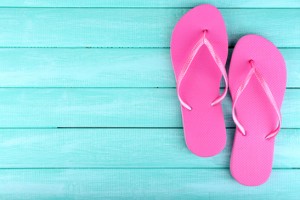Keeping your family safe in the summer is no easy task. Despite dangers from sun, water, heat, boats and even fireworks, there’s actually a lot you can do to keep everyone safe. We’ve created a list of lesser known safety tips that you may have never read about or have forgotten. Review this list with your family and do what you can to keep your family safe this summer.
 Safety Tips for Being in the Sun
Safety Tips for Being in the Sun
- Babies under 6 Months should be covered up with light clothing and kept out of the sun, but an SPF 15 can be used if sun exposure is unavoidable.
- Stick to the shade wherever possible.
- Wear a hate and sunglasses around the water.
- Always use SPF 15 or higher.
- Reapply sunscreen every TWO hours.
Safety Tips for Heat
- Children under three cannot regulate their body temperature like adults, so special care needs to be taken to keep infants and small children safe in the heat.
- For outdoor activities involving lots of children, at least one adult should be trained to identify and treat heat exhaustion and heat stroke.
- Drinking water is the single most important thing you can do when in the heat.
- Make sure children drink plenty of water before outdoor activities.
- Encourage children to take a break and drink water every 20 minutes.
- It’s best to gradually adjust children to strenuous activities and exercise when heat and humidity are at particularly high levels.
- Wear light colored clothing to reflect heat from the sun.
Safety Tips for the Pool
- At least one adult should know how to swim and perform CPR.
- Fences around the pool should be at least 4 feet high and wooden fences should face outward to make climbing more of a challenge.
- Keep flotation equipment and a fiberglass (doesn’t conduct electricity) shepherd’s hook nearby in case of an emergency.
- “Arm Floaties” will not suffice for children that don’t know how to swim. Use a life vest.
- Consult with your pool professional to ensure that all drains are compliant with the Pool and Spa Safety Act, so people don’t get stuck in the suction of a drain or vacuum hole.
Safety Tips for the Beach
- One adult in the group needs to be a strong swimmer.
- If there aren’t lifeguards on duty, one adult needs to know how to perform CPR.
- Never swim alone!
- Don’t rely on beach lifeguards. It’s up to you to keep a close eye or hand on any family member that enters the water.
- Swim parallel to the shore if you’re ever caught in a rip current.
Safety Tips for Boating
- Everyone on board needs to know how to swim.
- One adult on the boat should know how to perform CPR.
- Children need to wear life jackets at all times. Click here for a Coast Guard life jacket guide.
- Inflatable toys don’t count as life jackets!
- Never operate a boat under the influence.
Safety Tips for Fireworks
- Leave firework shows to the professionals and avoid home firework displays.
- Sparklers aren’t harmless!
Safety Tips for Outdoor Activities
- Use the edge of a credit card to remove insect stingers.
- Insect repellent with DEET is the best way to avoid ticks.
- 10% DEET provides protection for about 2 hours.
- 30% DEET provides protection for about 5 hours.
- Never let children on a playground wear helmets or hats that loop around their neck.
- Avoid outdoor trampolines at all costs!
- Bike helmets should have an CPSC safety standard label or sticker.
- Don’t let children under 16 drive ATV’s, ride-on mowers or other off-road vehicles.
- Never drive mowers sideways on a hill. Always go straight up and down hills.
- Don’t let children under 12 operate push mowers.
The American Academy of Pediatrics, an organization dedicated to the health of all children, provided us with many of the safety tips on this list. We’ve left off a number of the more commonly known summer safety tips, so encourage reviewing the AAP’s more comprehensive lists of Summer Safety Tips and Sun and Water Safety Tips.
In the United States alone, approximately 92,000 people are successfully resuscitated with CPR, but another 100,000 to 200,000 could have been saved. If you’re going to be around the water this summer, consider signing up for a CPR class for the sake of your family. Visit our website for a list of the CPR training classes available in your area. Contact us if you have any questions or would like to learn more about becoming trained in CPR.

